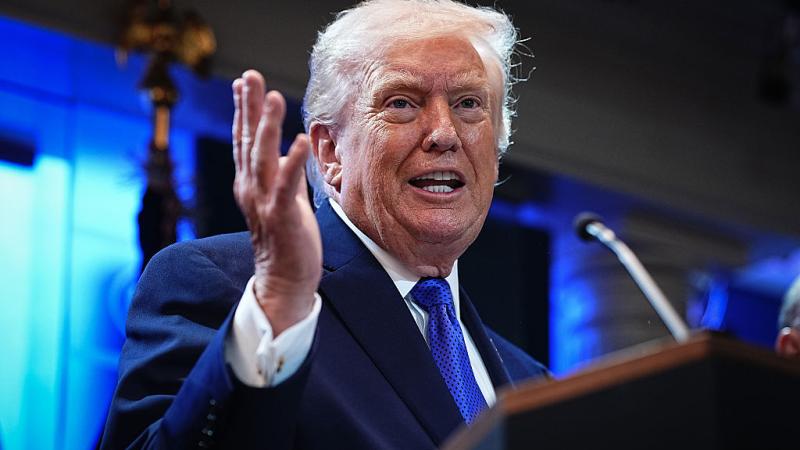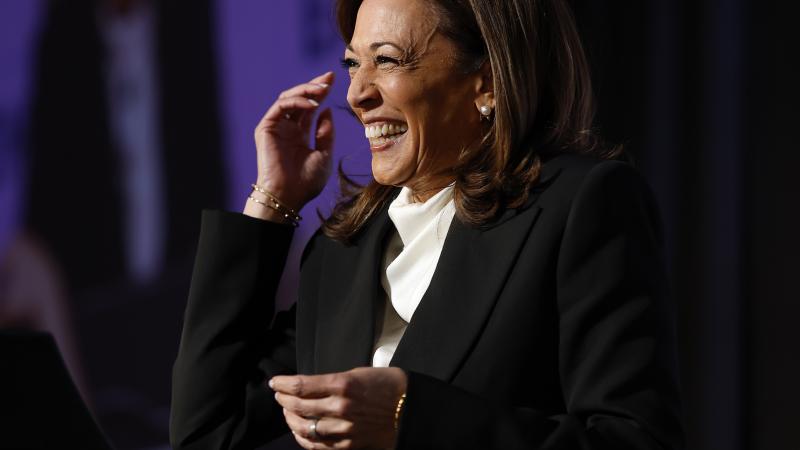Senate recess plans under fire amid push to confirm Trump nominees
Trump had floated recess appointments at the start of his term as a way to push through some of his more controversial Cabinet choices and presidential nominees.
With Congress on recess throughout the month of August, President Donald Trump’s political nominees will see their confirmations stalled for weeks, without the prospect of a recess appointment to clear the backlog due to a procedural tool that Republican leaders may employ to stop him.
President Donald Trump, for his part, urged Senate Majority Leader John Thune to cancel the August recess and to have the upper chamber work through the weekends to confirm the backlog of presidential nominees. Thune plans to keep the Senate open through the first weekend of August, but not likely long enough to clear the nominee queue.
The Senate GOP has largely blamed the Democrats for not permitting voice votes or simple unanimous consent to approve routine nominees, but has stopped shy of materially changing course.
“Senate Democrats have not allowed a single [presidential] nominee to be confirmed by voice vote or unanimous consent—the first time in recorded history this has happened,” the Senate Republicans account posted this week. “We will get President Trump’s team confirmed despite Democrats’ historic obstruction.”
Senate stands firm against recess appointments
Trump previously floated recess appointments at the start of his term as a way to ram through some of his more controversial Cabinet choices and presidential nominees. The upper chamber declined to pursue that option and held firm against Matt Gaetz, Trump’s original choice for Attorney General.
The August recess is traditional, and a lengthy recess would theoretically let Trump pursue his appointments without the normal Senate scrutiny, but the chambers plan to hold so-called “pro-forma sessions” that will nominally continue the legislative session.
Pro-forma sessions usually last only a few minutes and largely serve to fulfill the technical obligations of the chambers to avoid having to formally open a new session. As a result, holding these sessions will render the Senate at least nominally in session and prevent Trump from making recess appointments.
Angry Republicans call out "fake" sessions
At least a few lawmakers have urged the chambers to refrain from holding such sessions and to either recess fully or refrain from leaving throughout the month of August.
“The Senate shouldn’t recess before clearing the 135-nominee confirmation backlog,” posted Sen. Mike Lee, R-Utah. “If the Senate recesses anyway, it should *actually* recess—NO PRO FORMA SESSIONS, as their only purpose is to prevent Trump from making recess appointments. The Senate can’t have it both ways.”
“During August recess, Speaker Johnson and Leader Thune plan to call the House and Senate into session every four or five days, with practically no one there, for the sole purpose of preventing Trump from making recess appointments,” Rep. Thomas Massie, R-Ky., said. Accompanying his post was a video of a pro forma session of the House last week that lasted for less than three minutes.
“The Senate has 3 choices: 1) fully recess & allow POTUS to recess appoint. 2) NOT recess & do its job. 3) recess & do fake sessions to prevent recess appointments. Only 1 & 2 are acceptable,” posted Rep. Chip Roy, R-Texas, this week.
Budgetary concerns
But recess appointments aren’t the only issue impacting how Thune addresses the August recess, with budget concerns and the appropriations process leaving him with little room to maneuver. Thune faces a Sept. 30 deadline to pass the annual appropriations bills or risk a government shutdown.
“What I’ve said is … let us get back to regular order on appropriations and actually start doing that again,” Thune said to Punchbowl News this week. “That, to me, is the course we’re on right now. We ought to play that out.”
Part of the effort involves locking together three of the appropriations bills in a deal set for this weekend, but both Democratic pushback and frustrations from the administration could undermine or prolong that process. In either case, the appropriations issue appears poised to keep the Senate functioning in earnest for a few more days and possibly lead to a few more confirmations.
Blue slips
A recent exchange between Trump and Senate Judiciary Chairman Chuck Grassley, R-Iowa, moreover, added another layer to the recess issue, with the president calling on the senator to end the practice of blue slips.
The Senate has a longstanding tradition of permitting the senators of a state to essentially veto the appointment of nominees to their constituencies, a practice that Trump has insisted largely prevents him from appointing effective nominees to crucial areas, especially blue states.
Trump, on Tuesday evening, said that Grassley could eliminate the practice “with the stroke of a pen” and complained that "[t]he only way to beat this Hoax is to appoint a Democrat or, a weak and ineffective Republican."
Grassley responded the following day, saying he was “surprised” and “offended” by Trump’s comments.
Mullin: "Let's get it done"
Trump’s frustration with the confirmation process’s sluggish pace, however, appears somewhat unwarranted when compared with his first time in office.
Sen. Markwayne Mullin, R-Okla., offered a contrasting take on the pace of confirmations on Monday, saying “By this point today vs Trump 1.0: 2017: 55 noms confirmed. 2025: 107 noms confirmed. After confirming the President's entire cabinet at record pace, [Senate GOP] is working w/[White House] to prioritize all remaining confirmations. Like I've said, I'm in it. Let's get it done.”













